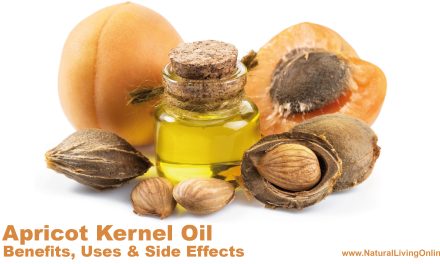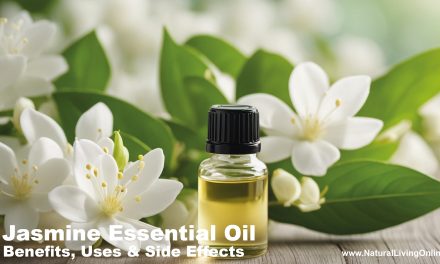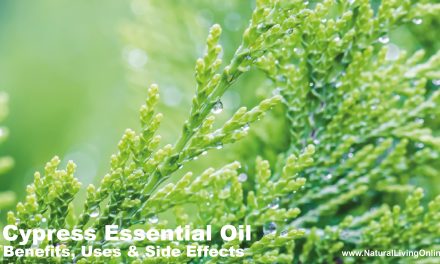Hinoki cypress (Chamaecyparis obtusa) is an evergreen tree that is native to Japan. The oil derived from its needles and twigs has a fresh, citrusy scent and is said to offer a variety of health benefits.
What is Hinoki Cypress?
Hinoki cypress is an evergreen tree that grows to a height of about 50 feet (15 meters). It has dark green, needle-like leaves and small, brown cones. The tree is often used as ornamental plantings in public parks and gardens.
Different types of Hinoki Cypress:
There are several different types of hinoki cypress, including the Hinoki falsecypress (Chamaecyparis pisifera), which is native to Japan and Taiwan, and the Nootka falsecypress (Chamaecyparis nootkatensis), which is native to North America.
How Hinoki Cypress Essential Oil is made?
Hinoki cypress essential oil is derived from the needles and twigs of the hinoki tree. The oil is extracted via steam distillation.
The oil has a fresh, woody scent with citrusy undertones. It is pale yellow in color and thin in consistency.
What is the botanical name of Hinoki Cypress?
Hinoki cypress is scientifically known as Chamaecyparis obtusa.
The chemical constituents of Hinoki Cypress essential oil (Hinoki Cypress Essential Oil Monograph):
– Alpha-pinene: 0.2 – 3.3%
– Beta-pinene: 0.1 – 1.4%
– Sabinene: 0.02 – 0.4%
– Myrcene: 0.05 – 1.0%
– Limonene: 0.1 – 3.2%
– Alpha-terpinene: 0.02 – 0.6%
– Gamma-terpinene: 0.04 – 1.1%
– Terpinolene: 0.03 – 2.0%
– Linalool: 0.1 – 2.6%
– Camphene: 0.04 – 1.0%
– Cypressene: 0.05 – 2.0%
– Alpha-terpinyl acetate: 0.1 – 2.5%
What are the benefits Hinoki Cypress Essential Oil?
Hinoki cypress essential oil is said to offer a variety of health benefits. These include:
1. Acting as an anti-inflammatory agent: Inflammation is a key contributing factor in many chronic diseases, such as arthritis, cancer, and heart disease. Hinoki cypress essential oil is thought to help reduce inflammation by inhibiting the production of inflammatory cytokines.
2. Supporting respiratory health: Hinoki cypress essential oil is often used as a natural remedy for respiratory problems, such as bronchitis, coughs, and colds. The oil is thought to help clear congestion and soothe irritated airways.
3. Boosting immunity: Hinoki cypress essential oil is said to boost the immune system by stimulating the production of white blood cells. This can help the body fight off infection and disease.
4. Reducing stress: Hinoki cypress essential oil is often used as a natural way to reduce stress and anxiety. The oil is thought to have calming and relaxant effects on the body.
5. Promoting skin health: Hinoki cypress essential oil is said to be beneficial for the skin, particularly in treating acne and other inflammatory skin conditions. The oil is thought to help reduce sebum production and balance skin pH levels.
6. Improving circulation: Hinoki cypress essential oil is said to improve circulation by stimulating blood flow. This can help to deliver oxygen and nutrients to the cells and tissues, improve tissue repair, and reduce inflammation.
7. Reducing muscle pain: Hinoki cypress essential oil is often used as a natural remedy for muscle pain and stiffness. The oil is thought to help relax muscles, reduce inflammation, and improve circulation.
8. Enhancing cognitive function: Hinoki cypress essential oil is said to enhance cognitive function and memory by stimulating the production of acetylcholine, a neurotransmitter involved in learning and memory.
9. Supporting detoxification: Hinoki cypress essential oil is said to support detoxification by stimulating the liver and promoting healthy digestion. The oil is thought to help remove toxins from the body and improve overall health.
What are the side effects of Citronella essential oil?
Hinoki cypress essential oil is generally considered safe for most people when used in small amounts. However, the oil can cause skin irritation in some people. It is also important to note that hinoki cypress essential oil should not be taken internally.
If you are pregnant or breastfeeding, it is best to avoid hinoki cypress essential oil as there is not enough research on its safety during pregnancy and breastfeeding.
When using hinoki cypress essential oil, it is important to start with a low concentration and increase gradually as tolerated. It is also important to choose a quality oil that has been diluted in a carrier oil such as jojoba or almond oil.
If you experience any side effects, stop using the oil and speak to a healthcare professional. You should also avoid using hinoki cypress essential oil if you have any allergies, particularly to the cupressaceae family of plants.
Possible drug interactions:
Hinoki cypress essential oil should not be taken internally. There is a lack of information on the safety of hinoki cypress essential oil when used in combination with other medications. If you are taking any medication, it is best to speak to a healthcare professional before using hinoki cypress essential oil.
What are ways to use Hinoki Cypress Essential Oil?
Hinoki cypress essential oil can be used in a variety of ways. Here are some of the most common ways to use the oil:
-Diffuse: Diffusing hinoki cypress essential oil can help to improve respiratory health and reduce stress. To diffuse the oil, add a few drops to an essential oil diffuser.
-Massage: Massaging hinoki cypress essential oil into the skin can help to improve circulation and reduce muscle pain. To use, dilute the oil in a carrier oil such as jojoba or almond oil and massage into the affected area.
-Inhalation: Inhaling hinoki cypress essential oil can help to clear congestion and ease breathing. To inhale the oil, add a few drops to a handkerchief or tissue and inhale deeply.
-Bath: Adding hinoki cypress essential oil to a bath can help to improve circulation and promote relaxation. To use, add a few drops of the oil to a warm bath and soak for 20 minutes.
-Compress: Soaking a cloth in hinoki cypress essential oil can help to reduce inflammation and pain. To use, add a few drops of the oil to a bowl of warm water. Soak a cloth in the water and apply to the affected area.
-Scalp massage: Massaging hinoki cypress essential oil into the scalp can help to improve circulation and promote hair growth. To use, dilute the oil in a carrier oil such as jojoba or almond oil and massage into the scalp.
Hinoki Cypress essential oil like any other essential oil should not be used internally without the permission and supervision of a doctor.
Hinoki Cypress essential oil should not be used by:
-Pregnant women
-Women who are breastfeeding
-People with allergies to the Cupressaceae family of plants
-People with liver or kidney disease
-People with bleeding disorders
-People taking blood thinners or other medications
If you have any concerns about using hinoki cypress essential oil, speak to a healthcare professional before using the oil.
Hinoki cypress essential oil is a potent oil and should be used with caution. It is important to start with a low concentration and increase gradually as tolerated. It is also important to choose a quality oil that has been diluted in a carrier oil such as jojoba or almond oil. If you experience any side effects, stop using the oil and speak to a healthcare professional.
How Hinoki Cypress Essential Oil helps in aromatherapy?
Hinoki cypress essential oil has a fresh, woody scent that can help to promote relaxation and ease stress. The oil is also effective in clearing congestion and easing breathing. When used in diffusers, hinoki cypress essential oil can help to improve respiratory health and reduce stress. When used in massage, the oil can help to improve circulation and reduce muscle pain. Inhalation of hinoki cypress essential oil can also help to clear congestion and ease breathing. When added to a bath, hinoki cypress essential oil can help to improve circulation and promote relaxation.
Great Essential Oil diffuser blends for aromatherapy with Hinoki Cypress Essential Oil:
Relaxation Blend: 3 drops of hinoki cypress essential oil, 2 drops of lavender essential oil and 1 drop of chamomile essential oil.
Breathe Easy Blend: 3 drops of hinoki cypress essential oil, 2 drops of eucalyptus essential oil and 1 drop of peppermint essential oil.
Stress Relief Blend: 3 drops of hinoki cypress essential oil, 2 drops of bergamot essential oil and 1 drop of ylang ylang essential oil.
Immunity Boosting Blend: 3 drops of hinoki cypressessential oil, 2 drops of lemon essential oil and 1 drop of rosemary essential oil.
Circulation Blend: 3 drops of hinoki cypress essential oil, 2 drops of ginger essential oil and 1 drop of black pepper essential oil.
Hair Growth Blend: 3 drops of hinoki cypress essential oil, 2 drops of rosemary essential oil and 1 drop of cedarwood essential oil.
Soothing Blend: 3 drops of hinoki cypress essential oil, 2 drops of orange essential oil and 1 drop of geranium essential oil.
How can I use Hinoki Cypress Essential Oil in bath?
Hinoki cypress essential oil can be added to a warm bath to help improve circulation and promote relaxation. To use, add a few drops of the oil to a bowl of warm water and mix well. Pour into the bathtub and enjoy.
Historical use of Hinoki Cypress as a herbal medicine:
Hinoki cypress has been used in traditional Japanese medicine for centuries. The tree was thought to have mystical powers and was used to make ceremonial masks and temples. The wood was also used to build baths and saunas. Hinoki cypress essential oil is still used in traditional Japanese medicine to treat a variety of conditions including colds, flu, bronchitis, asthma and skin disorders.
What blends well with Hinoki Cypress Essential Oil?
Hinoki cypress essential oil blends well with lavender, chamomile, eucalyptus, peppermint, bergamot, ylang ylang, lemon, rosemary, ginger, black pepper, orange and geranium essential oils.
What does not blend well with Hinoki Cypress Essential Oil?
Hinoki cypress essential oil does not blend well with basil, clove, lemongrass, patchouli, sandalwood, thyme or cinnamon essential oils.
What does Hinoki Cypress Essential Oil smell like?
Hinoki cypress essential oil has a fresh, woody scent with hints of lemon and floral.
Can I make Hinoki Cypress Essential Oil at home?
Yes, You will need:
-1 cup of hinoki cypress needles
-1 cup of jojoba oil or almond oil
-1 glass jar with a tight fitting lid
-A strainer or cheesecloth
To make your own hinoki cypress essential oil, add the hinoki cypress needles to the glass jar. Pour the jojoba oil or almond oil over the needles until they are completely covered. Place the lid on the jar and store in a cool, dark place for 2-4 weeks. Shake the jar every few days. After 2-4 weeks, strain the oil using a strainer or cheesecloth and store in a dark glass bottle. Your hinoki cypress essential oil is now ready to use.
What is the shelf life of Hinoki Cypress Essential Oil?
Hinoki cypress essential oil has a shelf life of 2-3 years when stored properly.
Is Hinoki Cypress Essential Oil safe for kids?
Yes, hinoki cypress essential oil is safe for kids when used properly.
Is Hinoki Cypress Essential Oil safe for pets?
Yes, hinoki cypress essential oil is safe for pets when used properly.
DIY recipes using Hinoki Cypress Essential Oil:
1. immunity booster diffuser blend: 3 drops hinoki cypress essential oil, 2 drops lemon essential oil, 1 drop rosemary essential oil
2. circulation boosting massage oil: 3 drops hinoki cypress essential oil, 2 drops ginger essential oil, 1 drop black pepper essential oil diluted in 1 tablespoon of carrier oil
3. hair growth stimulating shampoo: 3 drops hinoki cypress essential oil, 2 drops rosemary essential oil, 1 drop cedarwood essential oil diluted in 1 cup of shampoo
4. soothing body lotion: 3 drops hinoki cypress essential oil, 2 drops orange essential oil, 1 drop geranium essential oil diluted in 1/2 cup of lotion
5. stress relieving bath bomb: 3 drops hinoki cypress essential oil, 2 drops lavender essential oil, 1 drop chamomile essential oil diluted in 1/2 cup of baking soda
This website does not provide medical advice.
All information provided on this website, and on associated social media networks, including but not limited to texts, images, and numbers are for general information purpose only. It is not intended as medical advice and it does not include all possible precautions, side effects, or interactions that may occur. Neither NaturalLivingOnline.com nor its author/founder take responsibility for how you use this information. Statements contained on NaturalLivingOnline.com have not been evaluated by the FDA. You should conduct thorough research via multiple sources and consult your physician or qualified doctor before using any essential oil or herbal remedy. Information on NaturalLivingOnline.com must not be relied upon for medical, legal, financial or other decisions.













